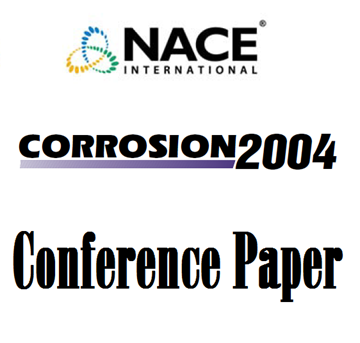Search
02217 CONSIDERATIONS FOR THE TESTING OF MATERIALS AND COMPONENTS IN SEAWATER
Also Purchased
96593 OPTIMAL SELECTION OF MATERIALS FOR SEAWATER INJECTION SYSTEMS TESTING IN DEOXYGENATED SEAWATER
Product Number:
51300-96593-SG
ISBN:
96593 1996 CP
$20.00
04298 Corrosion Evaluation of a High Performance Cu-Based Alloy for Seawater Applications
Product Number:
51300-04298-SG
ISBN:
04298 2004 CP
Publication Date:
2004
$20.00
02213 THE INFLUENCE OF ENVIRONMENTAL FACTORS ON THE CREVICE CORROSION OF ALLOY 625 IN NATURAL SEAWATER
Product Number:
51300-02213-SG
ISBN:
02213 2002 CP
$20.00




